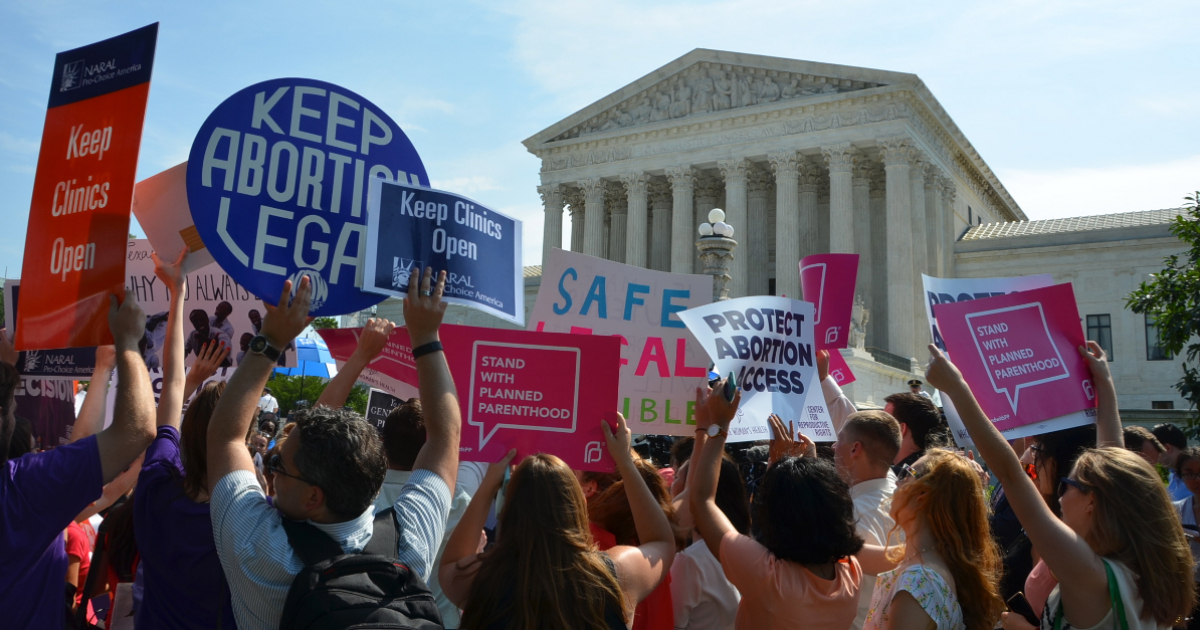
WASHINGTON (Reuters) - The United States Supreme Court decided on Friday to overturn the historic 1973 Roe v. Wade ruling, which recognized a woman's constitutional right to abortion and legalized it nationwide, marking a momentous victory for Republicans and religious conservatives who want to limit or ban abortion. procedure.
The court, in a 6-3 ruling driven by its conservative majority, upheld a Republican-backed Mississippi law that bans abortion after 15 weeks.
The judges held that the decision of the Roe v. Wade case, which allowed abortions performed before a fetus was viable outside the womb - between 24 and 28 weeks of pregnancy - was erroneous because the United States Constitution does not specifically mention the right to abortion.
A draft of the ruling was leaked in May indicating that the court would likely overturn Roe v. Wade, which caused a political storm.
The Mississippi law had been blocked by lower courts on the grounds that it violated Supreme Court precedents on the right to abortion.
The Jackson Women's Health Organization, the only remaining abortion clinic in Mississippi, challenged the 2018 law and had the support of Democratic President Joe Biden's administration in the Supreme Court.
The law allows abortion when there is a "medical emergency" or a "serious fetal abnormality," but does not have an exception for pregnancies resulting from rape or incest.
A federal judge struck down the law in 2018, citing the Roe v. Wade precedent. The United States Court of Appeals for the Fifth Circuit, based in New Orleans, reached the same conclusion in 2019.
The Roe v. Wade case recognized that the right to privacy under the United States Constitution protects a woman's ability to terminate her pregnancy.
The Supreme Court, in a 1992 ruling called Planned Parenthood of Southeastern Pennsylvania v. Casey, reaffirmed the right to abortion and banned laws that place an "undue burden" on access to abortion.
The president of the Supreme Court, John Roberts, criticized the May 2 leak of the judge's draft opinion Samuel Alito in the case and announced an investigation to identify the culprit.
Supreme Court leaks are extremely rare, especially when it comes to internal deliberations before a ruling is issued. After the filtration, Biden condemned the annulment of Roe v. Wade as a "radical" step and urged Congress to pass legislation protecting access to abortion nationwide.
Thousands of people demonstrated in favor of abortion rights in Washington and other cities after the leak, including some protesters at the homes of some conservative judges.
Justices in 2016 struck down a Texas law that imposed strict regulations on abortion facilities and doctors. In 2020, judges struck down a Louisiana law that imposed similar restrictions on doctors who perform abortions. But the court has become more conservative in recent years with the addition of three nominees of the former president. Donald Trump.
Since 2018, the court has lost two abortion rights advocates. The liberal judge Ruther Bader Ginsburg died in 2020, being replaced by Amy Coney Barrett, who noted her support for overturning Roe v. Wade as an academic before joining the judiciary.
Judge Anthony Kennedy, a conservative who sometimes sided with liberal justices on social issues such as abortion and LGBT rights, retired in 2018 and was replaced by Kavanaugh. Kennedy was part of the majority in the 1992 decision and voted to overturn Texas' abortion restriction in 2016. The judge Neil Gorsuch He replaced the late conservative Justice Antonin Scalia in 2017, who opposed abortion.
Opinion polls show that a majority of Americans support abortion rights. But the overturning Roe v. Wade has been a target of anti-abortion activists and Christian conservatives for decades, with annual marches on Washington, including in January of this year.
He number of abortions in the United States increased by 8% during the three years ending in 2020, reversing a 30-year trend of decline, according to data released June 15 by the Guttmacher Institute, a research group that supports abortion rights.
The abortion rate in the United States peaked in 1980, seven years after the Roe v. Wade ruling, with 29.3 abortions per 1,000 women of childbearing age - ages 15 to 44 - and stood at 13.5. per 1,000 in 2017, before rising to 14.4 per 1,000 women in 2020.
In 2020, 930,160 abortions occurred in the United States, and the 20.6% of pregnancies ended in abortion in 2020, up from 18.4% in 2017. Mississippi saw a 40% increase in abortions performed from 2017 to 2020.
Globally, the right to abortion in general it has been increasing. The UN World Health Organization said that around 73 million abortions take place worldwide each year, including 29% of all pregnancies.
(Reporting by Lawrence Hurley; Editing in Spanish by Ricardo Figueroa)
What do you think?
SEE COMMENTS (2)Filed in: